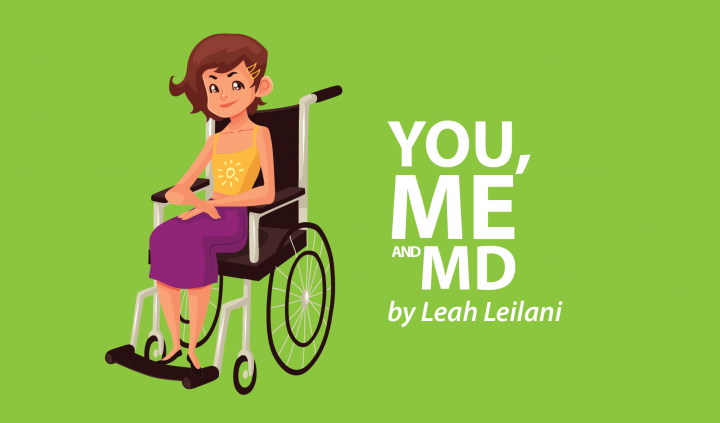I Advocate for Disability Rights with Apparel and Accessories

Many years ago, I wore a green wristband adorned with the words “energy for life.” This phrase helped me to promote awareness about my disease, mitochondrial myopathy.
I wore the wristband every day until one day it disappeared. I scoured my room looking for my beloved accessory, but came up empty-handed. Eight years later, I wanted to find another one to represent my disease and help me in my advocacy efforts.
After joining the United Mitochondrial Disease Foundation’s Facebook group, I scrolled vigorously through the posts, determined to find something similar to my long-lost item. I was on the hunt like a predator after its prey. Eventually, I found a man who advertised mitochondrial disease merchandise. I excitedly asked if he could mail me a bracelet, and against my better judgment, I gave him my home address.
A month later, I was still without my new bracelet and wondered if my efforts had been futile. Just as I was pondering this, my dad walked in with an envelope addressed to me. Inside was a Christmas card with the message, “Leah, your battle will always be close to my heart.” The card came with a blue mitochondrial disease awareness bracelet that hasn’t left my arm since.
Donning this accessory provides me with a sense of pride and security. I’m proud to be part of a community that includes generous people like the man who sent me the bracelet. I feel secure knowing that my disease is a part of my identity and has helped to shape my personality.
Apparel and accessories are some of the simplest ways to proudly display our disabilities and to show our advocacy for disability rights. By wearing these items, we can help to change the societal boundaries that we deal with every day by spreading awareness and educating others.
Influencer Alex Dacy, aka Wheelchair Rapunzel, creates her merchandise for these exact reasons.
The stylish designs featured on her clothing and accessories include profound messages such as “Disabled Bodies Matter” and “Love Your Genes.” These slogans help to combat harmful ableist views that still exist and to break the stigma about disability by changing the narrative.
The company 3E Love shares this mission of changing public perception of disability. Its trademark logo, the wheelchair heart, is known as the international symbol of acceptance. It aims to help those in the disability community embrace their diversity and to educate society at large. The company’s entire line of apparel features this symbol and can be worn by those with disabilities and their loved ones and friends.
I am blessed to be a member of a community that is unashamed to voice our opinions and showcase our disabilities. Today, I can comfortably and courageously embrace my diversity and stand up for my disability rights more than ever before.
***
Note: Muscular Dystrophy News is strictly a news and information website about the disease. It does not provide medical advice, diagnosis or treatment. This content is not intended to be a substitute for professional medical advice, diagnosis, or treatment. Always seek the advice of your physician or another qualified health provider with any questions you may have regarding a medical condition. Never disregard professional medical advice or delay in seeking it because of something you have read on this website. The opinions expressed in this column are not those of Muscular Dystrophy News or its parent company, Bionews Services, and are intended to spark discussion about issues pertaining to muscular dystrophy.







Leave a comment
Fill in the required fields to post. Your email address will not be published.